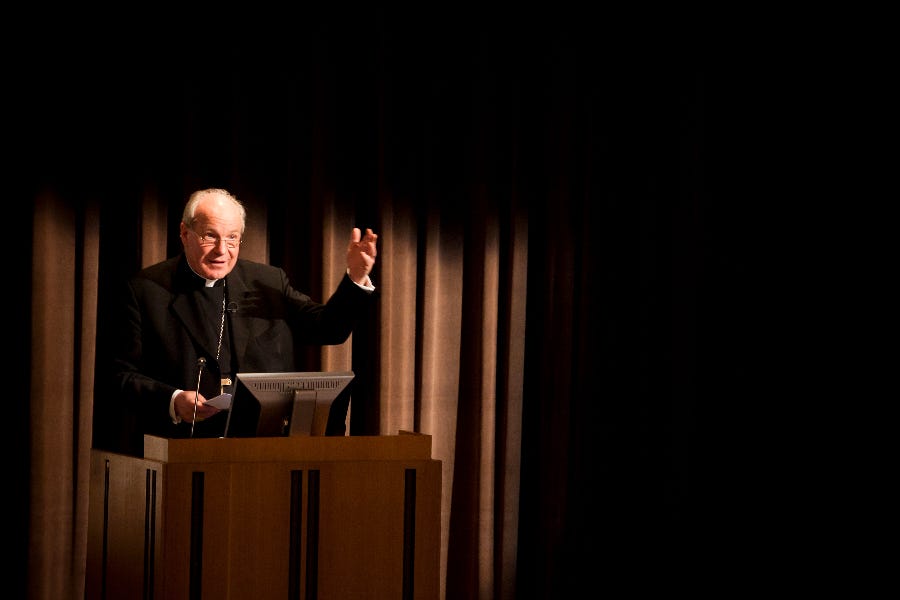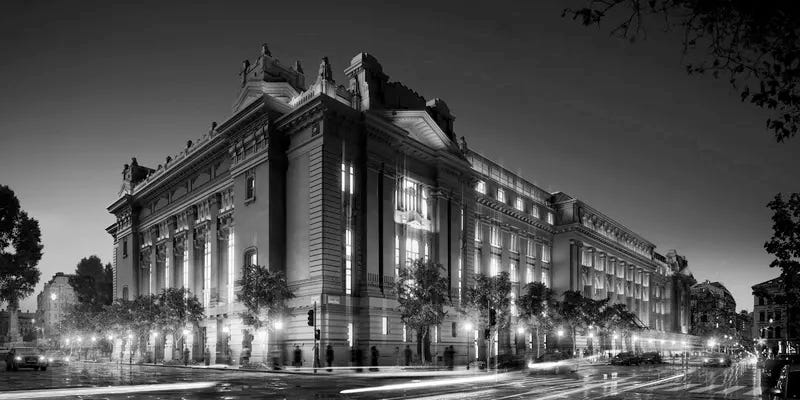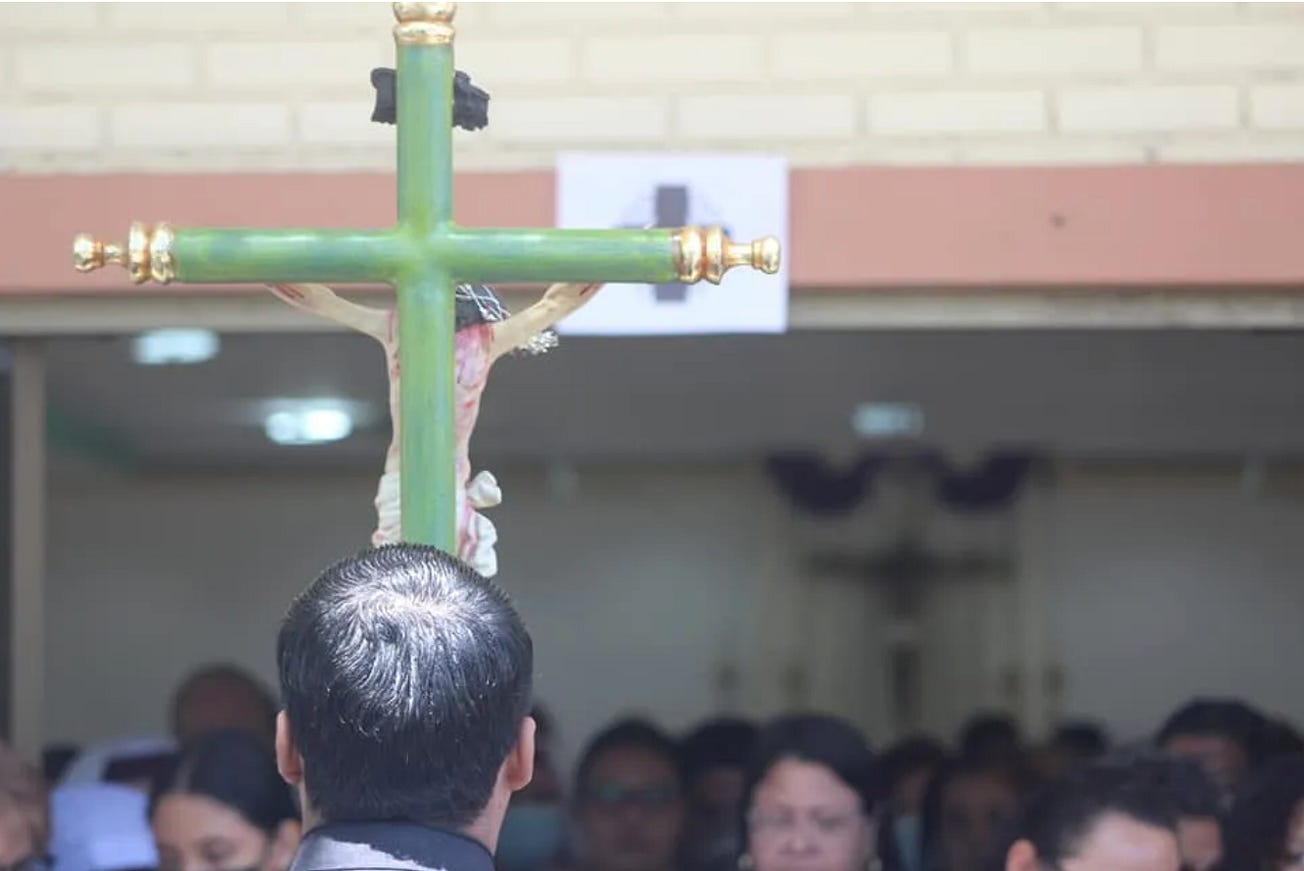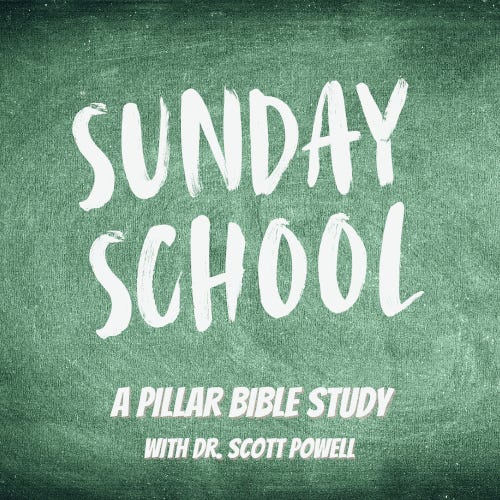Happy Friday friends,
And a very happy Feast of the Most Sacred Heart of Jesus. Of course, if you happen to live in a diocese or parish dedicated to St. John the Baptist, it’s the feast of his nativity for you — and only for you, the rest of us celebrated his birthday yesterday to make way for the Sacred Heart today.
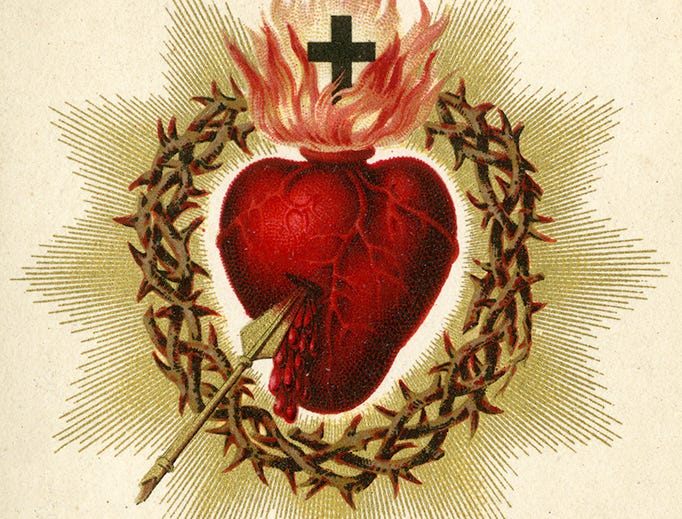
Of course, wherever you are, and whatever you’re feasting for, it’s a solemnity Friday, so fire up the grill.
St. John gets a few feasts in the Church’s calendar, and he’s the only person, apart from Our Lady and Our Lord, whose birthday we celebrate. Why so? Well, we talked to a couple of liturgists and Church historians to bring you all you could ever want to know about St. John, and why he gets special treatment.
Enjoy.
In the news
There was an interesting development in the Vatican financial scandal this week. Raffaele Mincione, the investment manager who sold the Secretariat of State the now-infamous London building, is suing the Swiss bank that introduced him to the Holy See in the first place.
So, what the heck is this about? Well, Mincione seems to be arguing that the massive PR disaster surrounding the Vatican’s investments with him has a lot to do with what the money they parked in his fund was meant to be used for — charity, as most people tell it — and had he known, presumably, he’d have done differently than he did.
It’s not the strongest argument I have ever heard. But Mincione has been trying for years now to bring a case outside Vatican City to clear his name, and been denied in both the UK and Switzerland. It’s possible this is just the latest stop in his search for a jurisdiction that will take his case while the Vatican trial is ongoing.
For what it’s worth, we’ve been reporting for years that it wasn’t quite as simple as the Secretariat of State investing actual Peter’s Pence money with Mincione — the funds were used as collateral with banks, including Credit Suisse, to secure loans to fund the investment. Why? Well, we’ve also reported, for years, that this was part of an effort to keep the whole project off Vatican balance sheets and away from prying eyes at the Secretariat for the Economy.
—
Staying for a moment with the weird and wonderful world of Vatican finances, it was announced this week that the Holy See has stepped in to help fund the rescue of a debt-ridden Catholic hospital on Tiber Island in Rome.
There’s a lot interesting about this story. APSA’s involvement caught my attention because the last time they bankrolled a Catholic hospital bailout, they seemed to do so in a way that violated a couple of phone book’s worth of Vatican financial regulations, and an agreement with Moneyval. So there’s that.
Also of interest are some of the reasons the Fatebenefratelli had so much debt it was about to fold. Italian authorities have, for years, been investigating our old friend Gianluigi Torzi, of London property deal fame, for alleged fraud against the hospital.
Torzi, allegedly, stiffed the hospital for millions after he packaged a bunch of the debts owed to the hospital into bond products, like the Sierra One Bond, which he sold to investors, like Raffaele Mincione, who invested in them with money from their clients, like the Holy See.
Like I said, it’s an interesting story. Read all about it here.
The fight for doctors and other medical professionals to have freedom of conscience in their work and practice is a serious struggle. At the same time, faith and belief are often the reasons people go into the practice of medicine in the first place — it underpins their medical service.
Kristin Collier is a doctor working hard to explain the importance to the medical profession of the faith and beliefs of healthcare providers.
She’s an MD and assistant professor of internal medicine at the University of Michigan, and she’s the director of UM Medical School’s Program on Health, Spirituality and Religion.
It’s a deeply personal story from a serious voice in the medical profession:
“As I went through my medical training, I became more entrenched in the views that I held and, am ashamed to admit, developed great animosity towards those who held either pro-life views or deeply held religious commitments.
As years went on, I started wrestling with making sense of the immense suffering I was seeing on the wards on which I was taking care of patients. In doing so began the process of wrestling with God. During this time, my husband, who I’ve known since high school, started attending a Christian church and became a committed Christian. This was a challenging time for us as I was hostile towards his conversion, but Tim was patient with me, and I know he prayed for me during this time.”
Read the whole interview here. It’s worth it.
—
While everyone is still waiting for that decision, the Supreme Court decided another case this week — ruling that the state of Maine may not prohibit the use of public “tuitioning funds” to be used for religious school students.
—
JD tells me that the NHL expansion team the Colorado Avalanche are set to win the Stanley Cup tonight. I hope they do, since it is my understanding that they are playing another expansion team, the Tampa Bay Lightning, and the very idea of a hockey team in Florida is unnatural.
He was ordained a priest of the Diocese of Timmins, Ontario, and became a pastor. But he also became, and remained until his death in 2002, the heart and soul of the Flying Fathers, an all priests exhibition hockey team.

It turns out that Costello is just one of a long line of hockey priests (and one bishop), and we have a great reading and watching list for you, should neutral fans be struggling to get in the mood for hockey night in late June.
You can find it here, this is a seriously great Friday read.
Some personnel news
At the beginning of this month I wrote to you all, thanking you, our subscribers, for helping us get this far in the 18 months we’ve been in business here at The Pillar, and asking you, our free readers, to consider helping us grow.
We have a growth plan that aims to serve the Church, and invites you to be a part of it.
I mentioned at the beginning of the month that we needed to find 500 people willing to become paying subscribers to keep us on course toward that.
To my sincere delight, 250 of you have joined us since then — and you have my deepest thanks for that.
Obviously, we need 250 more of you, from among our tens of thousands of free readers, to help us get where we want to be at the end of this month — and at $5 a month, a subscription is now cheaper than a gallon of gas, lasts a lot longer, and leaves a better taste in your mouth.
We need your help, we’re counting on you.
But I have also learned to trust you guys - as agents of God’s Providence - over the last year and a half. So, we took a gamble that you're going to come through for us on the rest, because we believe in you. And we have some really great news:
From Monday, the incredible Luke Coppen is joining The Pillar as our new Senior Correspondent.
Luke is a towering figure in Catholic journalism. As editor of the Catholic Herald, he transformed a tired newspaper into a thriving magazine and, in a decision that probably haunts him to this day, gave me my start as a writer. More recently, he was European Editor at the Catholic News Agency, where he was a consummate professional and a treasured colleague to JD, me, and Michelle.
We are over the moon to have him on board — he’ll be bringing you exactly the kind of in-depth reporting, long-read features, and informed analysis we hope you’ve come to expect from The Pillar, and he’ll open up a whole new front to our coverage, looking at the life of then Church in the UK, Europe and beyond.
I seriously cannot wait for him to start. He’s already full of ideas, including for a new daily project we’ll talk more about next week when he’s in the office. I’ve admired Luke and his work for years — before I knew him and before I ever got to work with him. Put simply, he’s the man.
We’ve got a lot of work to do, and our team is getting bigger and better. That’s thanks to the support of our friends and subscribers.
You are also, individually and collectively, the man.
All politics is local, so the saying goes.
The phrase is meant to convey that people tend to vote, regardless of the election, on the issues closest to home for them. Though I have long considered it an accidental acknowledgement that our democratic process is rife with unpleasant people saying and doing spiteful things to and about their neighbors as they grasp for the lowest rungs on the ladder of power.
This week, in my local city of Washington, incumbent Mayor Muriel Bowser won the Democratic nomination for the forthcoming election, essentially guaranteeing she will be returned to office.
I have no especially strong feelings about Ms. Bowser to share, though if you are looking for an illustration of “local politics” as described above, I’d recommend considering the quality of primary candidate she was up against.
Consider, for example, Mr. Trayon White Sr., the current D.C. councilman for Ward 8, whom the Washington Post billed as a “top challenger” to Bowser in this week’s contest.
In their run-down of his prospects prior to polling day, the Post covered Mr. White’s views on a range of policy issues, including gun violence, his push to decriminalize fare evasion on the DC Metro, banning the eviction of tenants during bad weather, and his work in the local community helping people find affordable housing— a worthy cause indeed.
What the paper did not find space to mention were some of Mr. White’s other, more controversial — some might say grotesque and antisemitic — views.
During his current term in office, Mr. White has expressed his belief — and I want to stress he literally said this in response to a snowstorm in Washington — that “the Rothschilds [are] controlling the climate to create natural disasters they can pay for to own the cities, man. Be careful.”
He later apologized, saying that he “did not intend to be antisemitic.” But he had previously told a council meeting that Jewish financiers “really pretty much control the federal government” as well as the World Bank. I know this, because I remember the Washington Post reporting it at the time, even if, it seems, they do not.
I am afraid that our national political conversation isn’t much elevated above this hateful level. Currently it is focused, so far as I can tell, on pouring rhetorical ordure on (and circulating the home addresses of) members of the Supreme Court who have the temerity to rule on cases in a way one or other group may find objectionable.
This is, it seems, but a prelude to a “night of rage” set to target Catholic churches with “extreme violence” in the event that Roe v. Wade is overturned next week — dioceses have already been warned by federal law enforcement to prepare for the worst.
This is the state of “our democracy,” as we like to call it. It is a tragic and violent reality, but also one I have long thought to be inevitable. The democratic process is a zero-sum game, ordered by its nature against consensus — you cannot be for a candidate without being against their opponent.
It is a system which incentivizes division and fragmentation; “wedge issues” are the best friend of the campaigner. The partisan political process is, in this sense, an agent of social decay, made exponentially worse in a secular society in which political beliefs are freighted with the moral and emotional urgency of religion.
In a healthy society, the democratic process is the means by which a coherent people chart their common path and hold themselves to account. But we are in this country neither a healthy society, nor a coherent people.
What we need, what we lack, and what the Church offers, is the necessary medicine to this — to love your neighbor as yourself. Announcing that in an age of political hatred and violence is not easy, nor especially pleasant. But, that is the mission of a Christian.
If the “night of rage” goes ahead, and if Catholic churches are targets, there will be many outside and within the Church arguing (albeit regretfully) that the Catholic commitment to pro-life witness brought this on ourselves; that churches will be vandalized, perhaps burned, because the Church has been “too political” — that we inspired, merited somehow, the hate being visited on us.
The challenge will be to answer with a loving “no.”
No, we oppose legal abortion because we love the mothers, and their children. No, our care and concern does not stop in the delivery room but carries on through the whole of life. And no, we do not answer hate with hate. We are called to love those who hate us.
That is our policy platform.
See you next week,
Ed. Condon
Editor
The Pillar
PS: If you want to give Luke a proper welcome, and help us bring you more good news like this, well, you know how…


